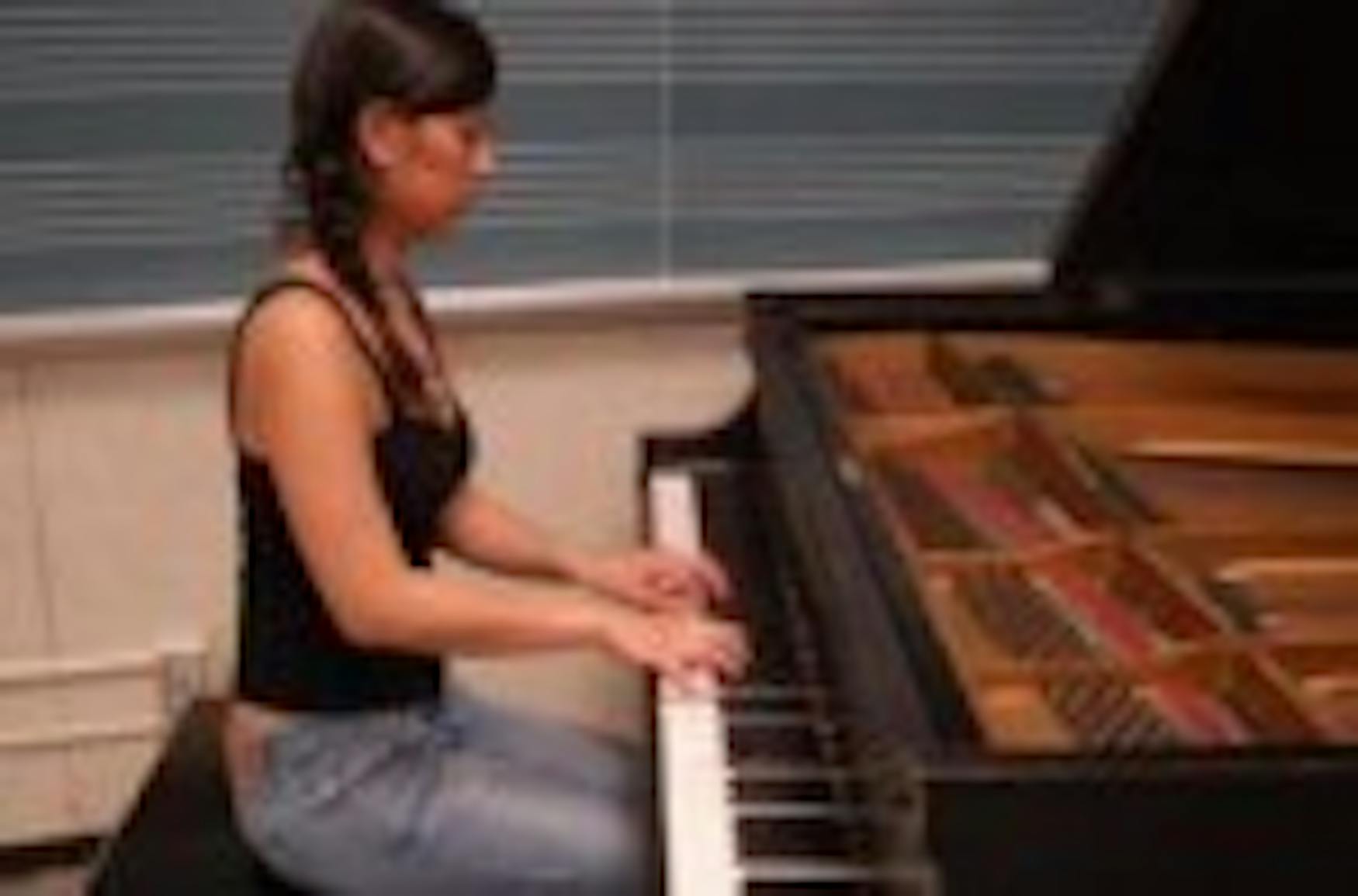Chun performance dramatic, yet restrained
So many of us live in fear of being too "out there." It's safer to keep doing the same things we've always done, leaving others to push boundaries and take the risks-and the world of classical music is not exempt from this compulsion.Fortunately for concert-goers, there are musicians like Arum Chun '08, whose commitment to century-spanning music proved her artistic courage Saturday in the Slosberg Recital Hall, and whose skillful musicianship and deep understanding of her program made sense out of what, in less sensitive hands, might have sounded like simple noise.
Chun opened her junior recital daringly, selecting a piece by Arnold Schienberg, considered by some to be the father of atonal music. Atonal music is hard to explain, but simply put, if you've ever heard a friend described a song as "something my four-year-old would come up with" or "I think they might've just been playing random notes," then your friend has heard either bad atonal music or good atonal music played badly.
Chun says she worried the piece "would drive the audience away," but such fears proved unfounded. Chun played the piece, "Six Kleine KlavierstAcke" with a profound sensitivity and formidable focus reminiscent of an actor delivering a dramatic soliloquy, imbuing each of the six short movements with distinct emotional significance.
That dramatic quality was much in evidence throughout the recital, an aspect of Chun's playing that she seems to have picked up from her teacher, Prof. Evan Hirsch (MUS), whom she describes as "theatrical."
"I can play a character while I'm playing," says Chun "It's a good outlet for things that I can't communicate otherwise." That communication-between the performer and the audience-is especially essential to instrumental music, which must convey emotion without the benefit of words, and Chun created a rapport which lasted through the entire program.
Yet, without once indulging in melodrama or histrionics, Chun performed with a focused restraint on Johann Sebastian Bach's "French Suite IV," a set of charming dance-style pieces, before pulling out all the stops on her third piece, Frdric Chopin's "Ballade G Minor." Unquestionably, the Chopin was the high point of the afternoon, being both technically challenging and emotionally demanding. Chun gave the piece her all, playing with her whole body and with obvious enthusiasm from the very first notes.
After a short intermission, Chun was joined onstage by the violinist Graham Patten '07, a member of the Student Ensemble in Residence Trio, for her last piece, "Sonata No. 1 for violin and piano in G Major" by Johannes Brahms. The work was an excellent choice, showing off both players without being showy; it provided each musician the chance to shine individually while always maintaining the forward momentum that makes the piece so exciting.
No matter how successful the recital, Chun is not ready to rest on her laurels. When asked about her plans for senior year, she explains "I want to be more involved with the composers in the department," a process she has already started by working with some graduate students on their piano compositions. If you like classical music or know anyone who does, mark your calendar for about a year from now, and be on the lookout for Chun's senior recital-if her junior recital was this good, her senior recital promises to be absolutely unforgettable.



Please note All comments are eligible for publication in The Justice.